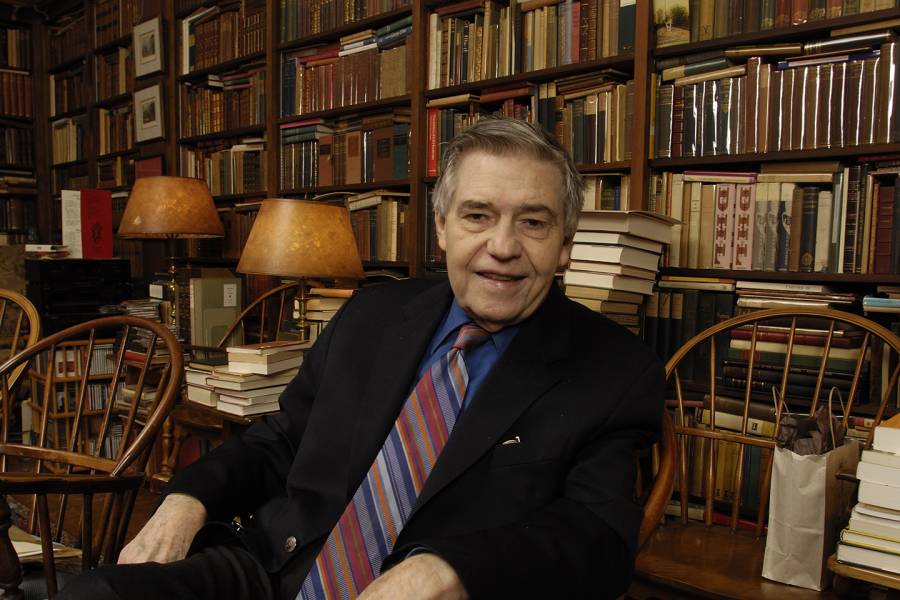You will likely recognize the name 'Osler' and know that Sir William Osler was a famous Canadian physician, who is sometimes called the 'Father of Modern Medicine'. That phrase was even used in a recent article which went on to suggest his name should be erased from our memory.
You will be able to judge easily from the headline, the sin of which he is now found to be guilty: "Sir William Osler's Revered Status in Medicine Shaken As Racist Views are Revealed," Marco Chown Oved, Toronto Star, Nov. 9, 2020. That article is reporting on another one with this rather sarcastic title, especially when appearing in a professional medical periodical: "William Osler: Saint in a White Man's Dominion", which is found in the Nov. 9th issue of the Canadian Medical Association Journal. Some of Osler's views are now considered by some to be reprehensible (he died in 1919) and it is suggested that his name needs to be removed from various objects and replaced by the names of others now more acceptable. That would include, here in London, Osler Street and the Osler Society up at the Schulich School of Medicine and Dentistry.
I was not convinced by the arguments presented, that Osler needs to be eliminated. I admit, as well, that I am more concerned about the skills of my cardiac surgeon than her political views. There are others better equipped to defend Osler including some close by, to wit: "Dr. Vivian McAlister, a surgeon and professor at Western University in London, Ont., warned against people reading Osler's words and judging them by the standards of today. "(Historical figures) all said things that would make us cringe today, but they were still very noble people," McAlister said. "(Osler) inspired all physicians of all races and all backgrounds to do better. He continues to do that today. That is his legacy." (that is from the Star article.)
“The dispensing of moral judgments upon people or upon actions in retrospect,” wrote Butterfield, is the “most useless and unproductive of all forms of reflection.”
Both the articles are available to you and you can decide for yourself. As well, you should read the long biographical essay by Charles G. Roland in the Dictionary of Canadian Biography, or the shorter one by him in the Canadian Encyclopedia. There is a good profile of Osler at Johns Hopkins where he was physician-in-chief. At McGill University, however, his legacy is under attack and, "This summer, Montreal emergency pediatrician and McGill professor Dr. Samir Shaheen-Hussain penned two columns asking why medicine still puts racists on pedestals." Apparently hiring policies at McGill are more liberal now than admissions standards once were, since the discriminatory policies against Jews were not changed until after World War II. While the Dr. above may not be Jewish, if he is really concerned about all the past injustices, he will likely be busier as a polemicist than a physician.
Osler's Other Controversies
If the Thought Police wish to be thorough in their indictment of the evil Osler, they should include three other incidents which indicate he did not have the character required for the period in which we live. The first two are reported in the DCB profile of Osler mentioned above. For very sensitive readers I should place here one of those warnings one gets before TV shows, but the sentence so far should suffice.
"William was an active and mischievous child, and numerous stories describe his jokes and pranks, one of which ended in an overnight stay in jail."
and
"Sometimes, Osler’s spirits bubbled over into literary practical jokes. One such instance of joie de vivre almost backfired. While living in Montreal, he concocted a spurious and ribald account of the supposed sexual and obstetric practices of an Indian tribe in Quebec, sending it under a pseudonym to a friend who edited a journal. The joke got out of hand when the article was accepted and almost published. A few years later, a similar piece by him was published."
(It is fortunate that I have few readers, none of whom would read carefully enough to notice the involvement of the Indigenous in the episode above. Although the people at Hopkins seem to be aware of all this horrid stuff, if this information spread widely in Canada, Osler would surely be in deep trouble.)
The third charge against Osler is far more serious. In 1905 he was widely condemned in the North American press for recommending that the elderly be euthanized. He made the suggestion during a talk he delivered as he was leaving Hopkins and it was quite controversial. It shouldn't be. The idea that we should all be allotted a "FIXED PERIOD" was taken from Trollope, but Osler's, "attempt at jocularity failed when the American yellow press sensationalized the story, claiming that Osler had seriously recommended that all older persons be chloroformed." His name became a widely used eponym and we can apply it artfully here and say the debate about Osler should be "Oslerized." Sir William Osler likely had both a better bedside manner and a better sense of humour than your current GP.
Sources:
"Nationwide ridicule of “The Fixed Period” address included cartoons such as this one, showing haloed William Osler dispensing chloroform to aging men. Image courtesy of the Alan Mason Chesney Medical Archives of the Johns Hopkins Medical Institutions.
All the above from: https://www.ncbi.nlm.nih.gov/pmc/articles/PMC6413966/
For the article in the CMAJ.
"William Osler: Saint in a “White Man’s Dominion,”
CMAJ November 09, 2020 192 (45)
Information about the "Fixed Period" fiasco is easy to find and you can begin with the Wikipedia entry. A thorough account is found in the following article which also provides these eponymous examples:
“To Oslerize” entered the American lexicon as a synonym for euthanasia, but the Baltimore News went further:
Osler; v.—To retire, to be retired. Example: “I am about to Osler.” “We have decided to Osler the janitor.”
Oslerization—The process of applying the Osler. Example: “Your services are no longer required.”
Oslerumni—Those who have been Oslered or Oslerized; divided into two classes—the material but declining and the spiritual but declined.
Osleresque—Having the quality of early retirement; prematurely languid; that tired feeling at 40.
Osleritis—See lazy.
From: "Osler Goes Viral: "The Fixed Period" Revisited," Charles S. Bryan, Proceedings- Baylor University, Medical Center, 2018-10-02, Vol. 31 (4). p.550.
A new article about Osler has just been published, but I was not able to access it. Here is the abstract:
Charles S. Bryan, "Sir William Osler, Eugenics, Racism, and the Komagata Maru Incident, "Baylor University Medical Proceedings, Published online: 09 Nov 2020
Abstract
A recent critic levels two new charges against Sir William Osler: (1) that in 1912 he was a vice president of the First International Eugenics Congress; and (2) that in 1914 he asserted Canada should remain a “a white man’s country.” Osler was indeed among the 31 vice presidents of the First International Eugenics Congress, but he did nothing further in this area. Osler indeed asserted that Canada should remain a “white man’s country,” but his context was the Komagata Maru incident during which most Canadians felt the same way about 376 passengers from the Punjab Province of British India who sought to defy Canadian immigration law. There is little or no indication of racism elsewhere in Osler’s deeds and writings, and the idea that race is largely a social construct emerged only after his death. Advocates for racial equality should view Osler not as an adversary but rather as an ally in today’s battles for global justice and also for human survival.
Charles S. Bryan (2020) Sir William Osler, eugenics, racism, and the Komagata Maru incident, Baylor University Medical Center Proceedings, DOI: 10.1080/08998280.2020.1843380
Bonus Information:
There is an Osler Society up at the Schulich School of Medicine and Dentistry: "The Osler Society at Western was founded as a permanent historical society at Western’s Medical School in the 1920s. It is named after Canadian doctor William Osler (1849-1919), who emerged as the ideal modern physician for his stance on the importance of practical instruction teaching in the laboratory, at the bedside and in the morgue. Osler’s The Principles and Practice of Medicine became a landmark textbook, going through eight editions in Osler’s lifetime and sixteen in total, and established him as the authority in modern medicine. His lay sermons include ethical and moral lessons relevant for physicians past and present."





